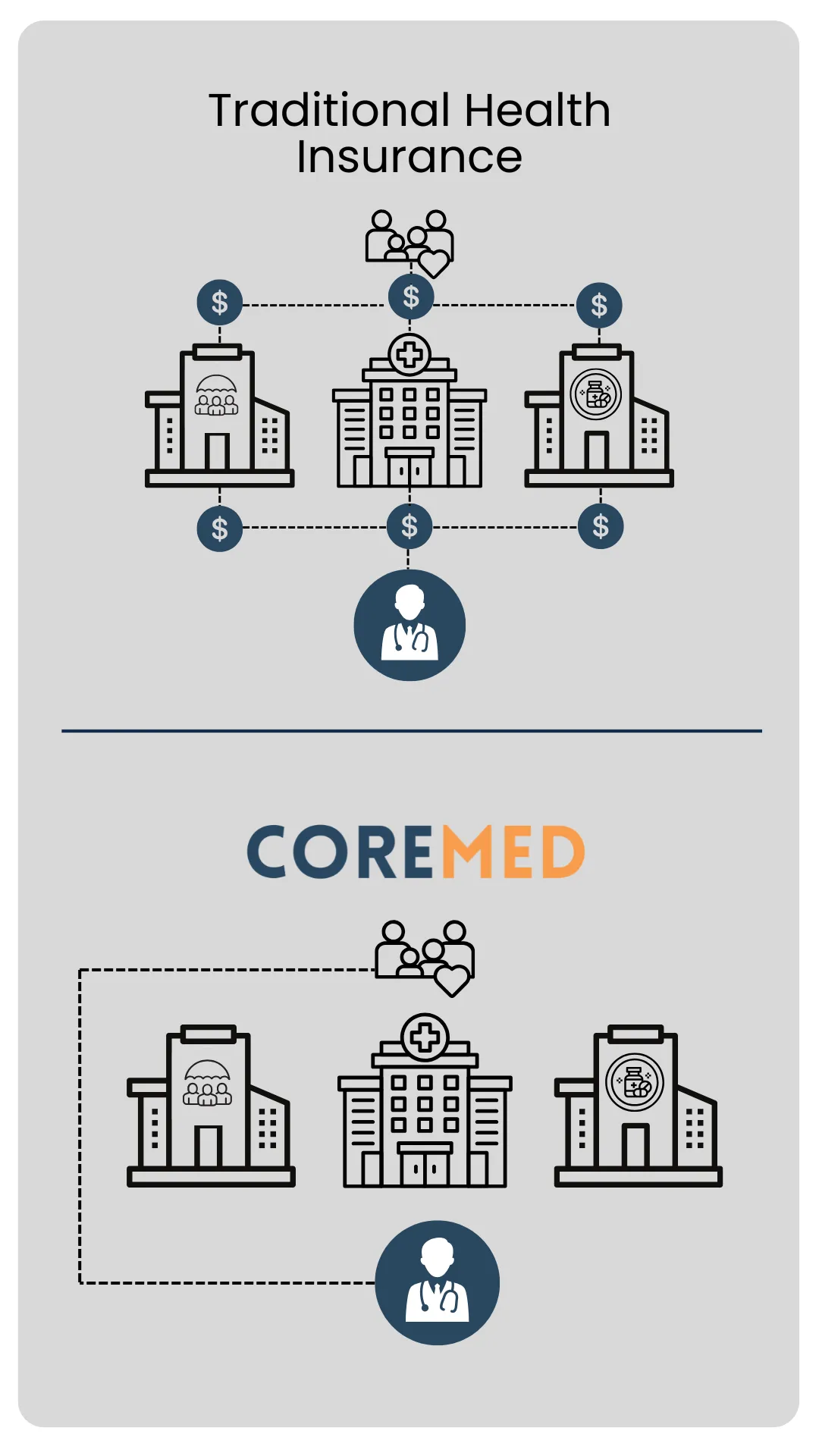One Membership,
All Your Care
One Membership,
All Your Care
Find Memberships
in Your Region
3 Simple Membership Plans
CoreMed provides a membership-based healthcare program offering a full package of healthcare, while avoiding the high cost of insurance.

Local Access to Health
Personal Doctor
Physical Therapy
Mental Health
Medications & Labs
X-Rays
No Annual Commitments - Cancel Anytime

Major health events
Surgery
Pregnancy
Major Medical events
Preventative Care
No Annual Commitments - Cancel Anytime

Full access to health

No Annual Commitments - Cancel Anytime
3 Simple Membership Plans
CoreMed provides a membership-based healthcare program offering a full package of healthcare, while avoiding the high cost of insurance.

Local Access to Health
Personal Doctor
Physical Therapy
Mental Health
Medications & Labs
X-Rays
No Annual Commitments - Cancel Anytime

Major health events
Surgery
Pregnancy
Major Medical events
Preventative Care
No Annual Commitments - Cancel Anytime

Full access to health

No Annual Commitments - Cancel Anytime
So how do we do it?
CoreMed bypasses the traditional healthcare system by removing insurance hurdles and third-party middlemen that often increase costs and delay treatment.

Find the best membership for you!
OWN A BUSINESS?
CoreMed is a modern healthcare membership solution designed to provide individuals, families, and businesses with direct access to high-quality, affordable care—without the complexities of traditional insurance.
Affordable healthcare plans for your employees.
Boost Employee Retention & Satisfaction
Flexible, Scalable Plans
Local membership support


OWN A BUSINESS?
CoreMed is a modern healthcare membership solution designed to provide individuals, families, and businesses with direct access to high-quality, affordable care—without the complexities of traditional insurance.
Affordable healthcare plans for your employees.
Boost Employee Retention & Satisfaction
Flexible, Scalable Plans
Local membership support
TESTIMONIALS
What others are saying







